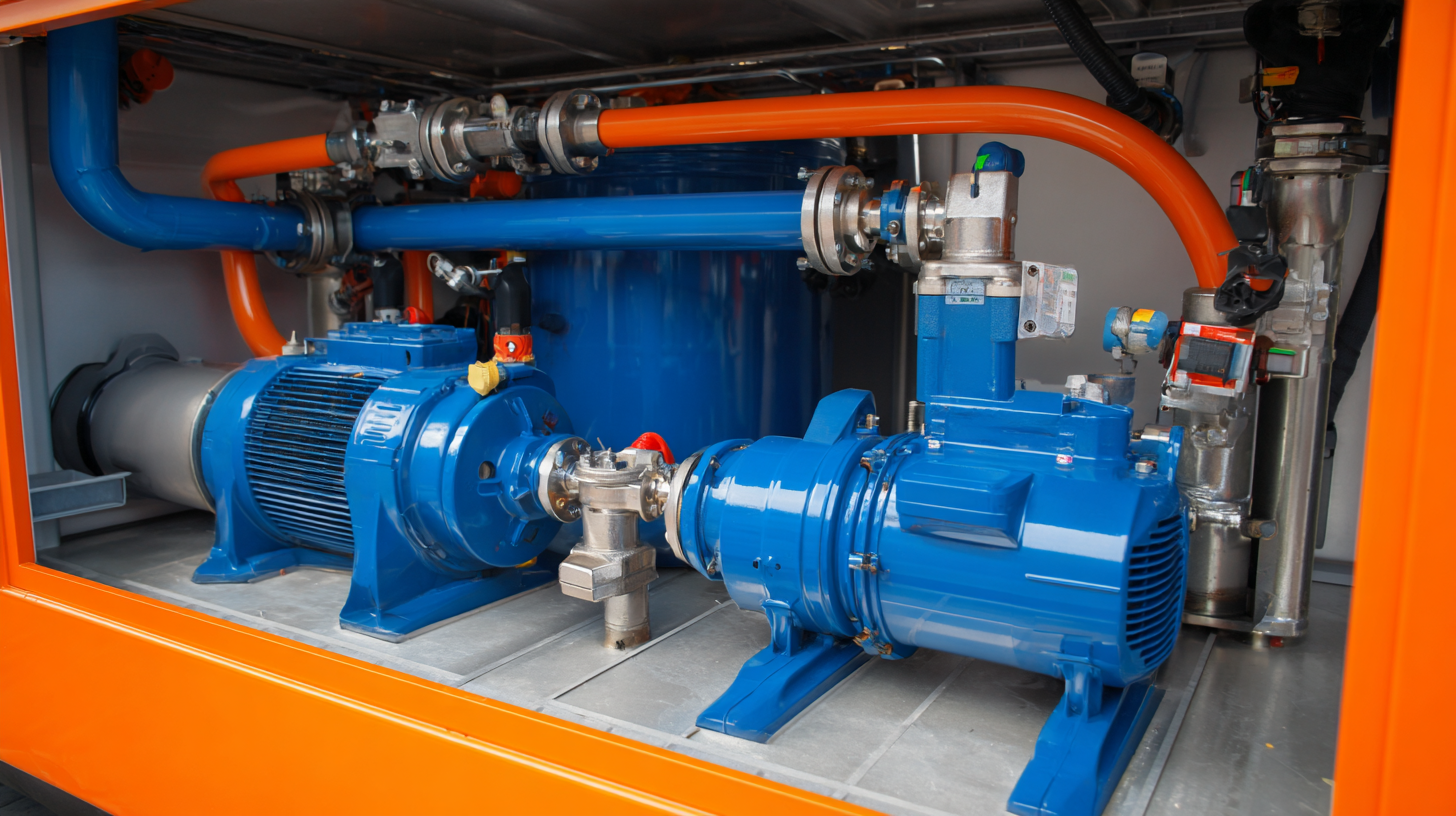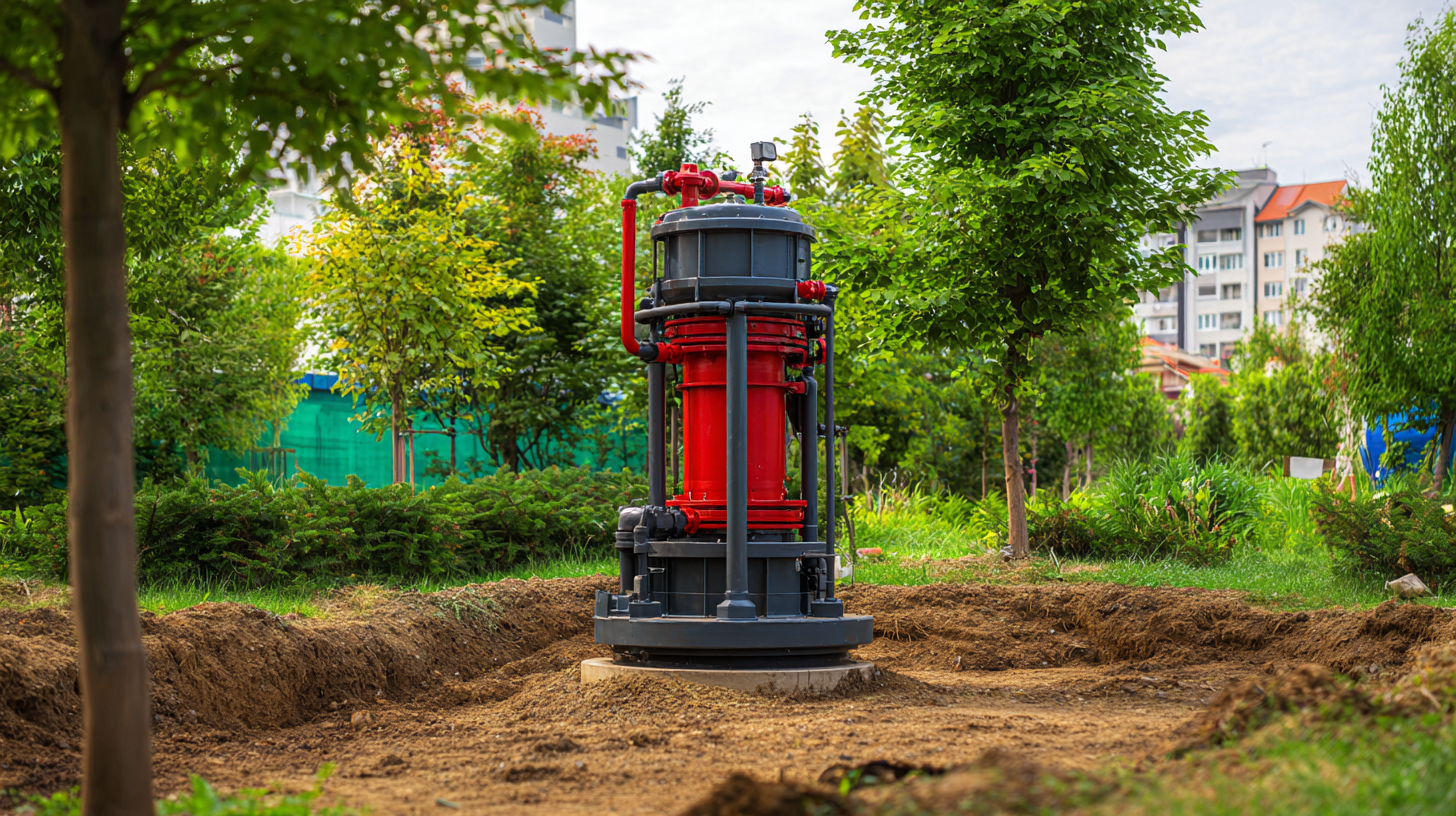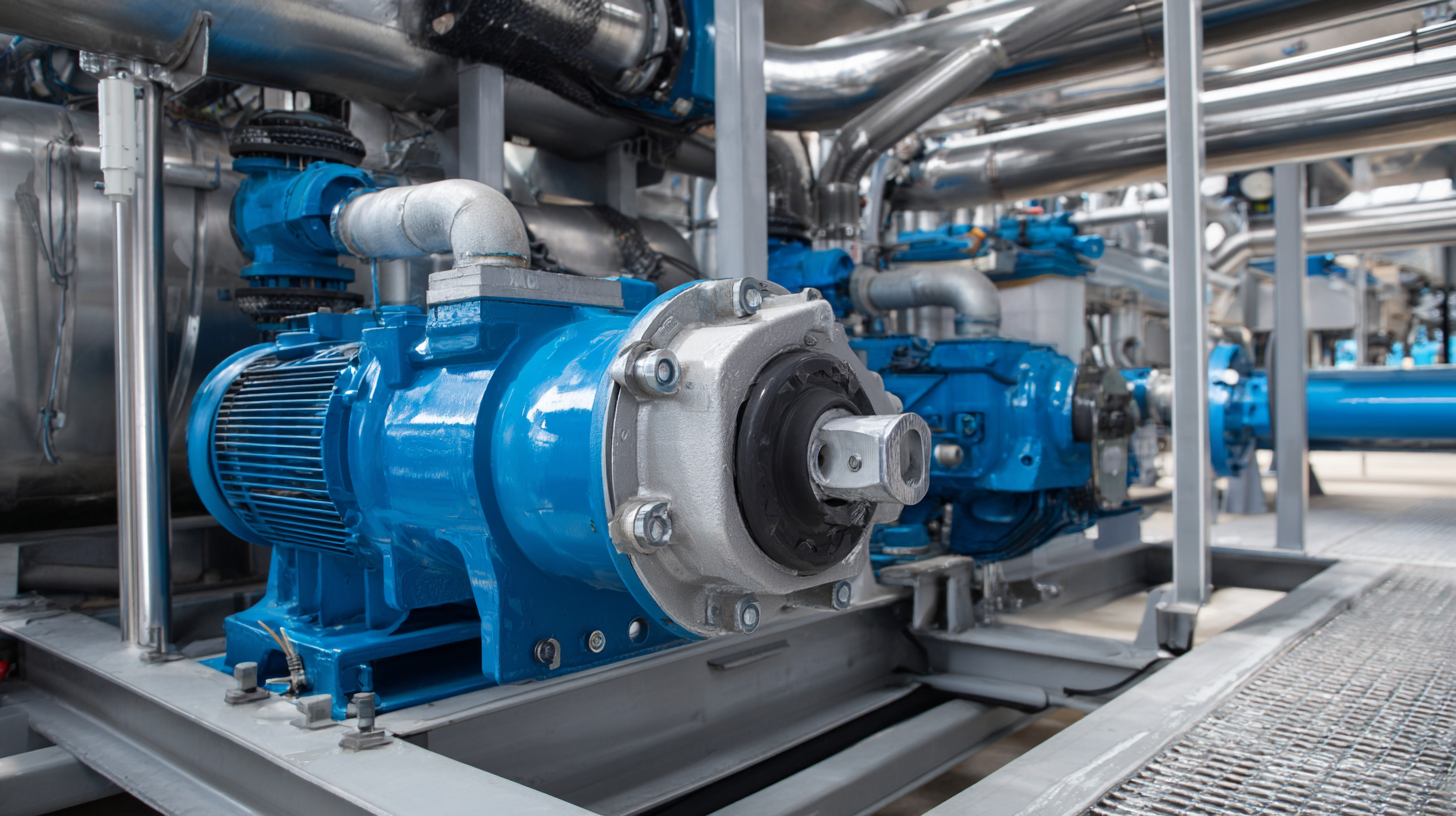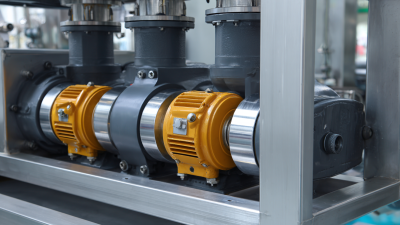- Eng
- Deu
- Fra
Understanding the Importance of Septic Vacuum Pumps for Effective Waste Management Systems
Septic vacuum pumps play a crucial role in effective waste management systems, particularly in rural and underserved areas where traditional sewage systems are not feasible. According to a report by the Environmental Protection Agency (EPA), approximately 25% of the U.S. population relies on septic systems, and of these, many depend on vacuum pumps to efficiently remove and transport wastewater. These pumps are designed to create a vacuum that draws wastewater from septic tanks to treatment facilities, ensuring that waste is managed safely and efficiently. The importance of maintaining optimal functioning of septic vacuum pumps cannot be overstated, as failures can lead to environmental contamination and public health risks. In light of the growing concerns regarding water quality and pollution, understanding the significance of septic vacuum pumps is essential for developing sustainable waste management strategies that protect both communities and ecosystems.

Types of Septic Vacuum Pumps and Their Applications
Septic vacuum pumps play a crucial role in managing waste effectively within septic systems. There are various types of these pumps, each designed for specific applications. Centrifugal vacuum pumps, for instance, utilize a rotating mechanism to create suction, making them ideal for transporting liquid waste over long distances. Their robust design allows them to handle liquids with varying levels of solids, which is essential for residential and commercial wastewater management.
Another type is the diaphragm vacuum pump, known for its efficiency in handling small to medium volumes of waste. This pump type is particularly effective for systems that require precise control over the flow, such as those found in mobile or portable septic applications. Additionally, positive displacement pumps create a vacuum regardless of the waste’s density, making them suitable for heavy sludge and a variety of liquid waste. Each type of septic vacuum pump, with its unique features and functionalities, contributes significantly to maintaining hygienic and efficient waste management systems.
Understanding the Importance of Septic Vacuum Pumps for Effective Waste Management Systems
| Type of Septic Vacuum Pump | Application | Capacity (GPM) | Power Source | Typical Uses |
|---|---|---|---|---|
| Piston Vacuum Pump | Residential Waste Management | 10-15 GPM | Electric | Septic tank evacuation |
| Diaphragm Vacuum Pump | Commercial Waste Management | 5-10 GPM | Gasoline | Portable waste collection |
| Liquid Ring Vacuum Pump | Industrial Waste Management | 20-30 GPM | Electric | Large scale waste treatment |
| Claw Vacuum Pump | Mobile Waste Collection | 15-25 GPM | Electric/Gasoline | Portable tanks and septic systems |
Key Features of Effective Septic Vacuum Pumps
 Septic vacuum pumps play a crucial role in waste management systems, ensuring the efficient removal and transport of sewage and wastewater from septic tanks. One of the key features of effective septic vacuum pumps is their powerful suction capability, which enables them to handle both liquid and solid waste effectively. This feature is vital for maintaining the proper functioning of septic systems, preventing overflow and potential environmental hazards.
Septic vacuum pumps play a crucial role in waste management systems, ensuring the efficient removal and transport of sewage and wastewater from septic tanks. One of the key features of effective septic vacuum pumps is their powerful suction capability, which enables them to handle both liquid and solid waste effectively. This feature is vital for maintaining the proper functioning of septic systems, preventing overflow and potential environmental hazards.
Another important aspect is the pump's construction and materials. Durable materials that resist corrosion and wear are essential for longevity and reliability, especially in challenging environments. Additionally, user-friendly controls and maintenance accessibility streamline operations, making it easier for both professionals and homeowners to ensure optimal performance. High-quality septic vacuum pumps also come equipped with advanced filtration systems, which help to protect the pump from clogs and extend its lifecycle, making them a wise investment for any waste management system.
Comparative Analysis: Electric vs. Gas-Powered Vacuum Pumps
When choosing a septic vacuum pump for waste management systems, the decision often comes down to electric versus gas-powered options. Electric vacuum pumps are known for their efficiency and low operational cost. They produce less noise, require less maintenance, and are typically easier to operate in residential settings. With advancements in technology, electric pumps have become more powerful, allowing them to handle various waste materials effectively. Additionally, their eco-friendliness is a significant advantage as they produce no emissions.

On the other hand, gas-powered vacuum pumps have their own set of benefits, particularly in remote areas where electrical access may be limited. These pumps tend to offer greater mobility and can operate continuously without the constraints of electrical supply. They are often more robust and can handle larger volumes of waste quickly, making them suitable for larger scale operations or emergency situations.
However, they may come with higher fuel costs and maintenance needs due to engine wear and tear. Thus, the choice between electric and gas-powered vacuum pumps ultimately depends on the specific requirements of the waste management system and the environment in which they operate.
Maintenance Practices for Optimal Septic Vacuum Pump Performance
Septic vacuum pumps play a crucial role in maintaining effective waste management systems, particularly in remote areas where traditional sewage systems are impractical. Regular maintenance of these pumps is essential to ensure they operate efficiently and to prevent costly failures. Key maintenance practices include routine inspections, checking for clogs or leaks, and ensuring that the pump’s components are in good condition. By adhering to these practices, property owners can promote longevity and optimal functionality of their septic systems.
In a related context, it is important to recognize best management practices not only in waste disposal but also in the handling of specific types of waste, such as amalgam waste in dental offices. Just as the EPA mandates for amalgam separators in dental practices to facilitate proper waste management, similar regulatory frameworks should guide the maintenance of septic vacuum pumps. Implementing systematic maintenance and adhering to environmental regulations can significantly reduce the risk of pollution and enhance the overall efficiency of waste management systems. Through diligent care, both septic systems and commercial waste generators can ensure they contribute to sustainable waste management practices.
Septic Vacuum Pump Performance Analysis
Environmental Impact of Efficient Waste Management Systems
Efficient waste management systems are crucial for minimizing environmental impact and promoting sustainability. At the heart of these systems are septic vacuum pumps, which play a vital role in removing waste and preventing contamination of soil and groundwater. By effectively transporting sewage and other waste materials to treatment facilities, these pumps ensure that hazardous substances do not leach into the environment, thereby protecting ecosystems and public health.
Moreover, the use of septic vacuum pumps helps in reducing odors and mitigating pollution associated with traditional waste disposal methods. Their efficiency aids in managing large volumes of waste in urban areas, where sanitation is paramount. As communities increasingly prioritize environmental responsibility, investing in advanced vacuum pump technology fosters a cleaner, healthier environment. Such systems not only address immediate waste concerns but also support long-term ecological balance, emphasizing the critical link between waste management practices and environmental stewardship.

